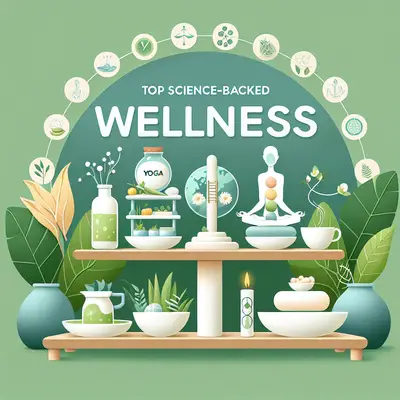1. Ashwagandha
Ashwagandha, an adaptogenic herb, has been used in Ayurvedic medicine for centuries. It's known to reduce stress and anxiety, improve sleep, and boost your immune system. A study published in the Indian Journal of Psychological Medicine showed that Ashwagandha effectively enhances an individual's resistance towards stress and improves self-assessed quality of life.
2. Curcumin
Curcumin, the active ingredient in turmeric, is a powerful antioxidant with potent anti-inflammatory effects. It's known to boost brain function, lower the risk of heart disease, and even prevent cancer. A 2017 review in the Journal of Medicinal Food confirmed the health benefits of curcumin, highlighting its role in chronic disease prevention.
3. Probiotics
The importance of gut health can't be overstated. Probiotics, or "good bacteria," help maintain a healthy gut, which in turn influences overall health. They can improve digestion, enhance immunity, and even impact mental health. A 2019 review in the European Journal of Nutrition found that probiotics significantly reduce symptoms of depression in patients with clinical depression.
4. Omega-3 Fatty Acids
Omega-3 fatty acids, found in fish oil, have numerous health benefits. They can fight depression and anxiety, improve eye health, promote brain health during pregnancy and early life, and reduce heart disease risks. A study published in the Journal of the American Medical Association showed that Omega-3 supplements effectively lower cardiovascular disease risk.
5. Vitamin D
Vitamin D is essential for maintaining healthy bones and teeth, and it may also protect against a range of conditions such as cancer, type 1 diabetes, and multiple sclerosis. A 2018 review in the Journal of the American Osteopathic Association highlighted the importance of adequate Vitamin D intake for optimal health and disease prevention.
Conclusion
Incorporating these natural supplements into your lifestyle can significantly boost your wellness, helping you to thrive amidst the demands of modern life. Always remember, however, that supplements should not replace a balanced diet and regular exercise. Consult with a healthcare professional before starting any new supplement regimen.



